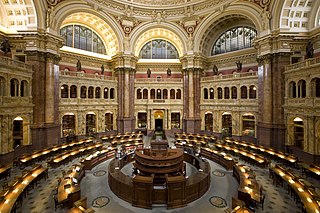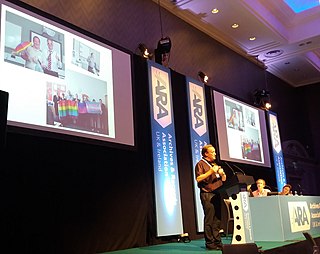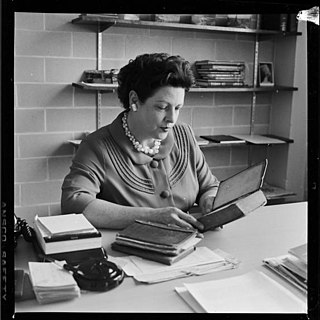Related Research Articles
Historically black colleges and universities (HBCUs) are institutions of higher education in the United States that were established before the Civil Rights Act of 1964 with the intention of primarily serving the African-American community. Most of these institutions were founded in the years after the American Civil War and are concentrated in the Southern United States. During the period of segregation prior to the Civil Rights Act, the majority of American institutions of higher education served predominantly white students, and disqualified or limited black American enrollment. For a century after the end of slavery in the United States in 1865, most colleges and universities in the Southern United States prohibited all African Americans from attending, while institutions in other parts of the country regularly employed quotas to limit admissions of Black people. HBCUs were established to provide more opportunities to African Americans and are largely responsible for establishing and expanding the African-American middle class.

A research library is a library which contains an in-depth collection of material on one or several subjects. A research library will generally include an in-depth selection of materials on a particular topic or set of topics and contain primary sources as well as secondary sources. Research libraries are established to meet research needs and as such are stocked with authentic materials with quality content. Research libraries are typically attached to academic or research institutions that specialize in that topic and serve members of that institution. Large university libraries are considered research libraries, and often contain many specialized branch research libraries. The libraries provide research materials for students and staff of these organizations to use and can also publish and carry literature produced by these institutions and make them available to others. Research libraries could also be accessible to members of the public who wish to gain in-depth knowledge on that particular topic.

Hampton University is a private, historically black, research university in Hampton, Virginia. Founded in 1868 as Hampton Agricultural and Industrial School, it was established by Black and White leaders of the American Missionary Association after the American Civil War to provide education to freedmen. The campus houses the Hampton University Museum, which is the oldest museum of the African diaspora in the United States and the oldest museum in the commonwealth of Virginia. First led by former Union General Samuel Chapman Armstrong, Hampton University's main campus is located on 314 acres in Hampton, Virginia, on the banks of the Hampton River.

In library and archival science, preservation is a set of preventive conservation activities aimed at prolonging the life of a record, book, or object while making as few changes as possible. Preservation activities vary widely and may include monitoring the condition of items, maintaining the temperature and humidity in collection storage areas, writing a plan in case of emergencies, digitizing items, writing relevant metadata, and increasing accessibility. Preservation, in this definition, is practiced in a library or an archive by a librarian, archivist, or other professional when they perceive a record is in need of maintenance.
Library anxiety refers to the "feeling that one’s research skills are inadequate and that those shortcomings should be hidden. In some students this manifests as an outright fear of libraries and the librarians who work there." The term stems from a 1986 article by Constance Mellon, a professor of library science in the U.S. state of North Carolina, titled "Library anxiety: A grounded theory and its development" in the College & Research Libraries journal.
Paul Conway is associate professor in the University of Michigan School of Information and has worked with Yale University and Duke University Universities after starting his career at the Gerald R. Ford Presidential Library. His research and educational work focuses primarily on digital preservation and electronic media. He has published extensively throughout his career on library preservation, conservation issues, and education of library and archives personnel.
George Peter Lyman was an American professor of information science who taught at the University of California, Berkeley School of Information, and was well known in U.S. academia for his research on online information and his leadership in remaking university library systems for the digital era.

The Atlanta University Center (AUC) Robert W. Woodruff Library is a library in Atlanta which serves the four members of the Atlanta University Center, the world's oldest consortium of historically black colleges and universities and the Interdenominational Theological Center. The library, constructed in 1982, is named for Robert Winship Woodruff, former CEO of the Coca Cola Company. In 2010, the library completed a $16.2 million renovation, partly funded by donations from the Coca Cola Company.

The Digital Library Federation (DLF) is a program of the Council on Library and Information Resources (CLIR) that brings together a consortium of college and university libraries, public libraries, museums, and related institutions with the stated mission of "advanc[ing] research, learning, social justice, and the public good through digital library technologies." It was formed in 1995.
The Black Ivy League refers to a segment of the historically black colleges (HBCUs) in the United States that attract the majority of high-performing or affluent African American students.
The Mortenson Center for International Library Programs was created in 1991 with a gift from C. Walter and Gerda B. Mortenson to the University of Illinois at Urbana-Champaign. The Center promotes international peace through library training programs.
DuraSpace was a 501(c)(3) not-for-profit organization founded in 2009 when the Fedora Commons organization and the DSpace Foundation, two of the largest providers of open source repository software for managing and providing access to digital content, joined their organizations. In July 2019 DuraSpace merged with LYRASIS, becoming a division of that organization.
The Council on Library and Information Resources (CLIR) is an American independent, nonprofit organization. It works with libraries, cultural institutions, and higher learning communities on developing strategies to improve research, teaching, and learning environments. It is based in Alexandria, VA, United States. CLIR is supported primarily by annual dues from its over 180 sponsoring institutions and 190 DLF members, and by foundation grants and individual donations.

The field of library science seeks to provide a diverse working environment in libraries. Ways to change the status quo include diversifying the job field with regards to age, class, disabilities, ethnicity, gender identity, race, sex, and sexual orientation.

Chicago Collections Consortium is a membership organization of more than 45 libraries, museums, historical societies, and other cultural heritage organizations collaborating to preserve and promote the history of the Chicago region.
The Boston Library Consortium (BLC) is a library consortium based in the Boston area with 23 member institutions across New England.

Michael Alan Keller is an American academician and librarian. He holds an appointment at Stanford University as the Ida M. Green University Librarian and, until August 31, 2020, Vice Provost for Teaching and Learning (2018-2020).

Doris Eileen Lewis was a Canadian librarian who served as the first University Librarian at the University of Waterloo.

Tamar Evangelestia-Dougherty is an American librarian and administrator. An archives and special collections expert, Evangelestia-Dougherty was the executive director of the Chicago-based Black Metropolis Research Consortium from 2011 to 2013 and the director of collections and services at the Schomburg Center for Research in Black Culture from 2013 to 2015. She became the first director of the combined Smithsonian Libraries and Archives, the world's largest museum library system, in 2021.
References
- ↑ Unaeze, Felix Eme (2012). "Managing Historically Black Colleges and University Libraries during Economic Recession: Challenges and Expectations for Library Deans and Directors". In Jackson (Sekou Molefi Baako), Andrew P.; Jefferson Jr., Julius C.; Nosakhere, Akilah S. (eds.). The 21st-Century Black Librarian in America: Issues and Challenges. Scarecrow Press. pp. 97–104. ISBN 978-0-8108-8246-1 . Retrieved 13 May 2021.
- ↑ Orphan, Stephanie (April 2003). "Historically Black Colleges formalize alliance". News from the Field | College & Research Libraries News . Vol. 64, no. 4. Association of College and Research Libraries. p. 237. doi:10.5860/crln.64.4.235 . Retrieved 13 May 2021.
- ↑ Parham, Loretta O'Brien; Franklin, Janice R. (1 February 2004). "Preserving A Historic Legacy: The HBCU Library Alliance". Against the Grain. 16 (1). doi: 10.7771/2380-176X.5408 . Retrieved 13 May 2021.
- ↑ "White House Initiative on Historically Black Colleges and Universities | U.S. Department of Education". sites.ed.gov/whhbcu. U.S. Department of Education . Retrieved 13 May 2021.
- ↑ Smith, Kathlin (30 July 2019). "CLIR and HBCU Library Alliance Form National Partnership • CLIR". CLIR. Council on Library and Information Resources. Archived from the original on 29 April 2021. Retrieved 13 May 2021.
- ↑ "HBCU News". The Southeastern Librarian. 55 (4). 1 January 2008. ISSN 0038-3686 . Retrieved 13 May 2021.
- ↑ Decker, Emy Nelson; Odom, Rosaline Y. (2016). "Publish or Perish: Librarians Collaborating to Support Junior Faculty to Publish with the Academic Environment". In Brian, Doherty (ed.). Space and Organizational Considerations in Academic Library Partnerships and Collaborations. IGI Global. pp. 298–316. ISBN 978-1-5225-0327-9 . Retrieved 13 May 2021.
- ↑ "HBCU Library Alliance receives new grant from The Andrew W. Mellon Foundation". librarytechnology.org. Library Technology Guides. 1 November 2013. Archived from the original on 13 May 2021. Retrieved 13 May 2021.
- ↑ Free, David (June 2013). "HBCU Library Alliance announces ASERL Librarian Exchange participants". News from the Field | College & Research Libraries News . Vol. 74, no. 6. Association of College and Research Libraries. p. 280. doi:10.5860/crln.74.6.8956 . Retrieved 13 May 2021.
- ↑ "Authenticity Project". DLF. Digital Library Federation. Archived from the original on 25 April 2021. Retrieved 13 May 2021.
- ↑ Free, David (January 2015). "LYRASIS selects participants for HBCU Library Alliance Photographic Preservation Project". News from the Field | College & Research Libraries News . Vol. 76, no. 1. Association of College and Research Libraries. p. 9. doi:10.5860/crln.76.1.9239 . Retrieved 13 May 2021.
- ↑ "Andrew W. Mellon Foundation Awards $1.2 Million to HBCU". Interface. Association of Specialized and Cooperative Library Agencies. 29 (4). Winter 2007. ISSN 0270-6717. Archived from the original on 16 July 2011.
- ↑ "HBCU Library Preservation Program - A Collaborative Initiative Between WUDPAC and the HBCU Library Alliance". www.artcons.udel.edu. Art Conservation at UD. Archived from the original on 28 April 2021. Retrieved 13 May 2021.
- ↑ "Hampton University Students to Participate in the HBCU Library Alliance Summer Conservation/Preservation Program : Hampton University News". news.hamptonu.edu. 16 July 2020. Archived from the original on 23 February 2021. Retrieved 13 May 2021.